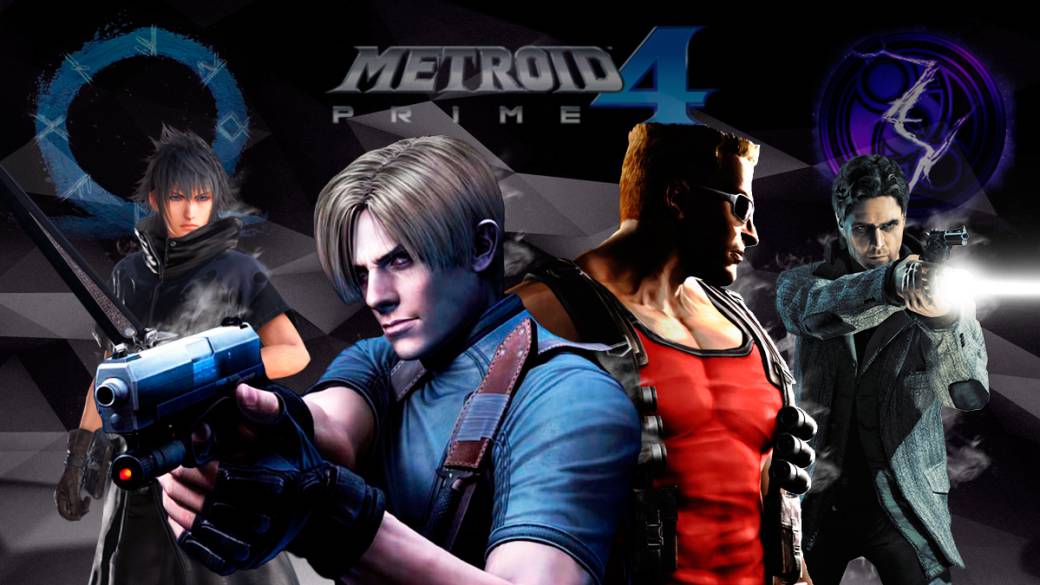
After the PS5 event, which leaves us more logos and small print, we reviewed the most recurring errors when announcing games, their reasons and solutions.
In this life there are chills and chills. They are read and written exactly the same, but they are not the same, far from it. It is important to learn to differentiate them. The first chill, for example, is the one that dances down your spine when, at the end of the PS5 event, you hear the voice of Christopher Judge (Kratos’ voice actor) announcing “one more thing”. This chill causes your throat to dry out, your pupils to dilate, and your pulse to race. It unleashes a mixture of illusion, nervousness and desire within you. From hype, they call it now. It’s the kind of chill we see those kinds of events through. Your skin gets on end and goose bumps, or vice versa, and even increases the blood pressure in a certain area located in your lower body. A smile overflows your face. Then a logo appears, God of War Ragnarok; a slogan, Ragnarok is coming; and a date, 2021. And that’s it. Caput. C’est fini. Sanse finished.
That’s when the second type of chill makes an appearance. The chill. This is very different. It is not a like a dance, but like a crush. It does not affect you on the outside, but on the inside. It is fast and fast, electric. It brings a bitter aftertaste to your mouth, causes general paralysis, misunderstanding and makes you start having flashbacks. But it is not like you are going to die, you do not see images with the best moments of your life, but you remember all the times you have seen a video game advertised with a simple logo. And what’s worse, you remember what happened next. This chill is as cold as a dagger. It makes you wonder if the God of War sequel deserved to be presented like this. If a logo is up to the GOTY of 2018 and one of the best games in the PS4 catalog. The chills erase any smile and after its passage there are only a bittersweet sensation and a question that constantly floats in our head. Why are video games advertised so badly?
A decade of logos and silence
Starfield and The Elder Scrolls VI (2018). What leads studios to become employees of their own consumers? Metroid Prime 4 and Bayonetta 3 (2017). At what point do companies think it is a good idea to announce something new born, something that is still tender and that there is nothing to show about? Dragon Age 4 and The Wolf Among Us 2 (2018). Why turn the fans into their own bosses and let, through public opinion and forum, that is, through pressure, they decide the correct deadlines to announce news and launch the games? Insane, by Guillermo del Toro, and Fez 2 (2013). Is it so that we stop asking them what they work on? To stop the rumors? Do you think we no longer bother George R. R. Martin since he named Winds of Winter and Dream of Spring? BioShock for PS Vita and the reboot of Contra (2011). Or is it just to raise your stock and bluff? Is that a question of money? They want us to believe that they are in good health and have an ace up their sleeve? Agent and Resident Evil for PSP (2009). Why this effort to show that man is the only animal capable of stumbling over the same stone more than twelve times?
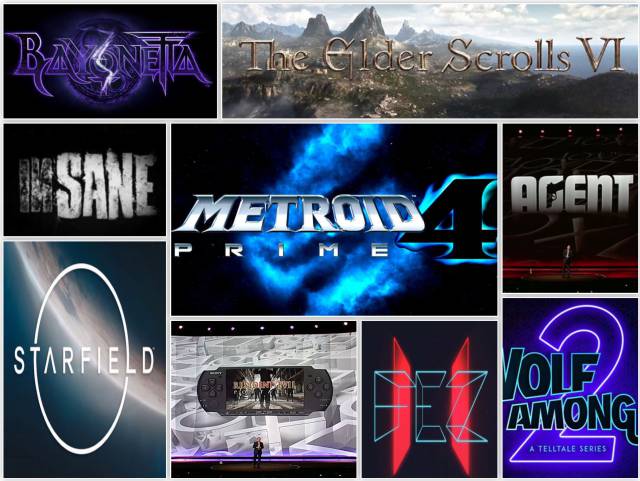
Logos have never been characterized by their punctuality. Some even broke our hearts and didn’t show up for the date.
The list of examples could be expanded with titles that were even announced without a logo, such as Dreams (2012-2019) and Pokémon Sword and Shield (2017-2019), which were only presented with sad statements from their creators confirming their existence. And if we accept octopus as a pet, we can also put all those games in the bag that, in addition to the logo, first teach a kinematics made by computer that could not be more generic and that hardly lasts one or two minutes. What is a generic kinematics? Well, one in which there is always something (a woman / an arrow / a fairy) that moves through a very beautiful landscape (an icy forest / a medieval world / a fantasy swamp) and ends up meeting a danger (a zombie deer / a balrog / a toad), at which point the trailer ends and … exactly, the happy logo (State of Decay 3 / Avowed / Fable) appears. You only make the setting clear, but you stay so comfortable and ale, for up to five years, as did CD Projekt RED with Cyberpunk 2077, announced in the same way back in 2013 and disappeared until 2018. (His trailer was some bullets that were going towards a woman in a wonderful futuristic city and, when someone appeared pointing at her from behind, bye bye). Well, until in five years or never, there we have Dead Island 2. (Where a man ran through a city full of zombies and when they were going to run him over, well that, faded to black). It is not that there are no more structures when making a trailer, but that when the game is rocking in the cradle there is no material for anything else.
Being God of War, most likely we will shut our mouths in a matter of months with a new GOTY and graphic reference, but …
If anyone has earned a vote of confidence, those are undoubtedly Cory Barlog, Santa Monica Studio and God of War Ragnarok, but let’s face it, the record is not very flattering. Logos tend to go hand in hand with silence. They are like a magic trick formed by a smoke bomb and a disappearance. They are usually followed by months of emptiness and communication opacity. Of delays, memes and moments “if I’ve seen you I don’t remember.” Amid the chaos after the PS5 event (whose fine print caused a coitus interruptus of games at 80 euros, intergenerational exclusives and ports to PC), the Ragnarok logo only served to add fuel to the fire. It could have been a knock on the table; a presentation not only up to par, but capable of selling you a console. In the end it only served to make us more paranoid and able to believe any FreeGameTips Consolas theory. Will it also come out on PS4, like Horizon Forbbiden West? Didn’t they teach it because it is crossgen and does not suppose the expected graphic jump? Or was it because it is still too green and will hardly arrive in 2021? Will they recycle material to meet deadlines? Will they avoid the crunch? Being God of War, it is most likely that we will close our mouths in a matter of months with a new GOTY and graphic reference, but this has nothing to do with God of War or Sony. Kratos is just an excuse for us to talk about how to advertise the games and all the problems it has generated for a long, long time. Too.
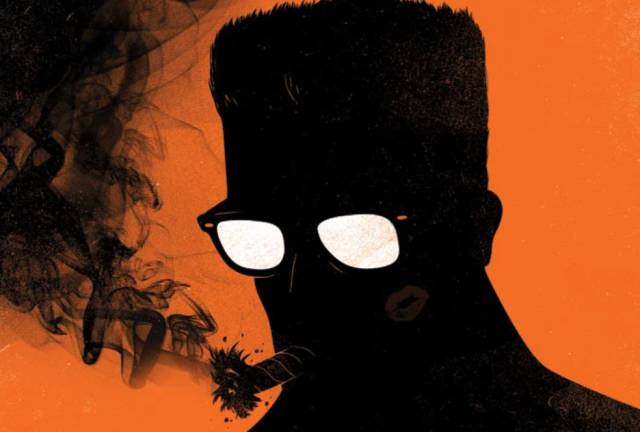
Contradictory ads, untimely, lies … Duke Nukem Forever is the clearest example of everything that should not be done.
Have we not learned anything from the past?
Historically, the mania for rushing through advertisements has always come at a high cost. Perhaps the most extreme case is that of Duke Nukem Forever. George Broussard and 3D Realms announced the game in 1997 and did so with a view to its publication just a year later, in 1998. It ended up being delayed, but over the next few years the team pulled information from the title relatively normally. In this way they captured the attention of the distributors and in 2001, after going through several hands, Take-Two Interactive took over their publishing rights. Coincidence or not, when picking up the line it was clear that the announcement had been premature and that things were going for a long time. Call it a drive for perfectionism or call it they sold smoke and there was hardly a sketch when it was announced. In any case, no one expected that, more than a decade later, in 2009, the game would remain in limbo after squandering more than $ 20 million going around without a clear roadmap. At one point, the crisis caused 3D Realms to lay off most of its team and several of the affected members leaked the chaos that the development had caused, and even the script that the game had at the time. They were the laughing stock of the industry. Fed up with the situation, Take-Two Interactive took 3D Realms to court and the result is known to all. The original studio dropped out of the project, and in 2010 Take-Two put one of their regular collaborators, Gearbox Software, at the helm. It took what was there, revamped it as best it could, and in just a few months, in 2011, it finally launched Duke Nukem Forever. It was considered one of the worst games of the year and became the lowest-rated installment in the series. Rightly so, we may never see the Duke again and all because of an untimely announcement. An advertisement that did get a distributor, but that added pressure and follow-up to the project, turning each new decision, each new delay and difficulty, into a kind of joke and recurring meme, into a cult work (for worse) reminiscent of Tommy Wiseau and The Room in the world of cinema. Who knows. Perhaps without contracts in between, without the fear of disappointing the fans who were waiting for it, and if it hadn’t become a common mockery, things would have been done differently. Or better yet, they would have stopped in time.
The cases of Alan Wake and Final Fantasy Versus XIII
In any case, you don’t have to go to Duke Nukem Forever to talk about badly made ads. There are two much more recent and famous, such as Alan Wake and Final Fantasy Versus XIII (aka FF XV). The first was unveiled by Remedy Entertainment at E3 2005, when it was still little more than a concept. In every project there is a pre-production and development phase that, having little established and consisting of many lines in the air, should always be done in privacy, behind the scenes. But in the case of Alan Wake it was not like that. Features that were simple ideas, like the city in which the game was set, Bright Falls, was an open world, were leaked and announced with great fanfare. People took them for certainties and placed their expectations on them. So even though they were later discarded and proven wrong, Remedy clung to them to “keep what was promised” and took longer than it should to release them. Nowadays, if you play Alan Wake, you still find, for example, very strange driving sections with improvable control and giant empty stages; Sections that are forgiving for variety, but that squeak and look like they were glued together with double-sided tape. In painting they are known as “regrets” and in script as “atapuercas”. Remnants of a previous version that have remained there, but no longer make sense. Steering wheel tracks and rudder turns. Alan Wake (who is now back in the rigorous news) ended up coming out in 2010, more than five years after its presentation and when many of us no longer knew what to expect. It earned a place in our little hearts and it was a remarkable title, but there was always the feeling that such a long, convulsive development and above all so public, weighed on the final result. Maybe if Remedy had been free and hadn’t had to meet anyone, she would have left the vehicles and open areas earlier, to say the least, and could have refined the combat to give it more variety and depth.
In painting they are known as “regrets” and in script as “atapuercas”. Remnants of a previous version that have remained there, but no longer make sense.
The same happened with Final Fantasy XV, released in 2016 but presented at E3 2006, when it was still called Versus XIII and not even its creator (Tetsuya Nomura) had fitted all the pieces in his head. It is no longer that it changed the title, but it also changed the platform and the graphics engine, scrapped characters from the first trailers (Stella Nox Fleuret), abandoned the original mythology and lore (Fabula Nova Crystallis), and even Nomura was replaced. in charge of the project to put Hajime Tabata. Not to mention how their mechanics and combat system varied. Between the title announced at E3 2006 and the one released a decade later there were more differences than things in common, to which Square Enix had to add expectations, which grew year after year. In order not to get too muddy, suffice it to show that Final Fantasy XV was born motivated by the fashion of the early 2000s, “the edgy era of video games”, when everything had to be dark and depressing, when everything had to “cool”. More than once it was recognized that the idea was to make a different delivery, a much darker, adult and mature one (how many times have these three terms been confused …). Ten years later, those designs had lost strength and meaning, out of tune and became anachronistic. There were other more important problems, but their designs showed the heavy heritage of an ad too early. If it had been shown for the first time when Tabata took over, which happened in 2012, perhaps the son would not have had to bear the father’s sins and another chocobo would have sung.
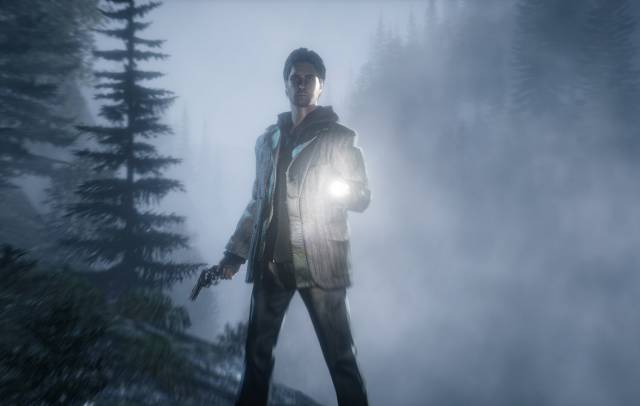
It is no longer just when things are announced, but also what you advertise. Remedy herself confessed in her day that “saying that Alan Wake was a sandbox was a mistake”.
The Crises of Fumito Ueda and Shinji Mikami
We have seen games that never came out after showing their logo, others that their untimely announcement ended up destroying (the Duke) and cases in which, although the ballot was drawn well (Alan and FF), there was the feeling that they could have It would have been much more if the road had not been so long and it had not worn them so much. But these types of errors do not only affect the works. Because of him we have also been on the verge of losing some of the great minds of the sector, such as Fumito Ueda and Shinji Mikami. In the case of the former it was because of The Last Guardian (announced in 2009 and launched in 2016). The title was shown at E3 when, as Shuhei Yoshida would recognize years later, he wasn’t ready for it. The ex-president of Sony Worldwide Studios admitted in 2015 that PlayStation 3 could not move what they showed in that presentation. With that graphic section, the game was jerking on the platform, it had an aberrant frame rate, but they edited and sped up the video so that everything seemed fluid and normal. With their announcement they put themselves against a rock and a hard place. They forced themselves to pursue minimums that only led to overtime, delays and fierce comments. Stagnant and unable to reach the bar they had set, Sony decided to take development to PS4, where they hoped it would work as they wanted. In doing so, they gave Fumito Ueda and his team a “push” away from their own baby to give it to Santa Monica Studio, who they asked to improve performance and adapt it to the new generation. Ueda felt betrayed and left Sony. He has never gone into detail about the exact motives, but more than once he has commented that he firmly believed that they could have achieved his vision for Trico on PS3 if they had acted otherwise. “I had a feeling of crisis within me for many things,” he acknowledged.
In 2011 the situation came to light. Fumito Ueda and his team had left Sony after several disagreements with the company. Also, the designer of Ico and Shadow of the Colossus was considering retiring from the industry. Fortunately, he and some of his old colleagues ended up founding a new studio, genDESING, took a breath and decided to finish collaborating with Sony to finish The Last Guardian, which was released in 2016. It is no longer that sometimes things are shown earlier. time, but sometimes something false is shown, as in this case. It is another wrong way of advertising things that is unfortunately very recurrent in the sector (we still have nightmares with cases like Watch Dogs). In fact, The Last Guardian delays led many to claim that the game was a flop even before it was even released. In a controversial article from 2015, Kotaku magazine said that yes, in 2009 the game would have been a milestone because it had reached an industry dominated by shooters, adventure games and speed games. But things had changed and titles like Journey, Papo & Yo, Bastion and The Walking Dead had retired The Last Guardian. His experience was already being offered by others and Trico was no longer so needed. How should it feel to be cut off from something you’ve been working on for almost ten years? Let them say that it is no longer useful or necessary when people have not seen it. Being considered lazy, lazy or slow because someone came to lie and show something ahead of time. The surprising thing is not that The Last Guardian turned out well, the surprising thing is that Fumito did not depart from the madding crowd of the industry.
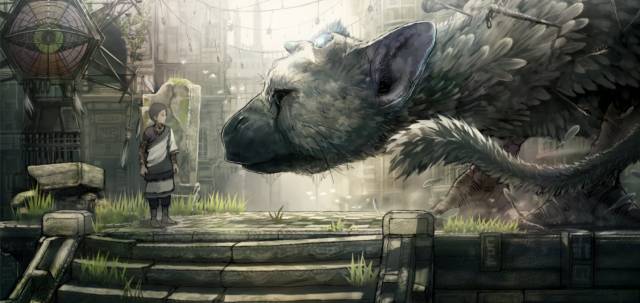
In addition to being branded slow and lazy, Fumito Ueda had to endure Sony removing him from the project and articles such as “Maybe I don’t need The Last Guardian anymore” by Kotaku. All for announcing the game early and badly, something foreign to him.
Demon’s Souls Remake and déjà vu with RE 4
Something similar happened with Shinji Mikami. In fact, what happened with Capcom, Resident Evil 4 and the exclusivity of GameCube is remotely reminiscent of what happens today with PS5 and titles like Demon’s Souls Remake or Ghostwire: Tokyo, the latter, curiously, also by Mikami. RE 4 was announced when Resident Evil 3: Nemesis had only been on the market for a few months. It was a premature announcement – surprise! – and its development lasted for more than six years. During them, Mikami worked in parallel on Resident Evil Code: Veronica, Dino Crisis 2, Onimusha: Warlords, Devil May Cry, Phoenix Wright: Ace Attorney, Resident Evil Remake, Steel Battalion, Phoenix Wright: Justice for All, Resident Evil Zero , PN03, Dino Crisis 3, Viewtiful Joe, Phoenix Wright: Trials and Tribulations, Steel Battalion: Line of Contact and Killer 7. Come on, almost nothing. A list full of masterpieces in which he was sometimes more and sometimes less involved, but that allows to see in perspective when the announcement of RE 4 was made and, at the very least, to question whether they could not have waited a bit.
The game was followed by what we mentioned before about Alan Wake. He made his first steps public, when the team was only doing tests and experiments. What if fixed cameras, what if paranormal enemies instead of zombies, what if it includes dialogue options, what if we are accompanied by a BOW dog … Many videos circulate on the internet of the more than four versions it had, some of the which even completed 40% of their development. Rather than working in private, Capcom brought the latest version to events like E3, gathered feedback and triggered the buzz. Then the study decided to try something else and start over. The wear and tear on the fans was evident. Nobody likes to be promised things and a few months later they change them. Many fans, for example, ended up preferring the first version, closer to the classic Resident Evil, than the last ones that were closer to the action. The sensations carried over to the development team, whose members admitted times of depression and doubts regarding Mikami’s decisions.
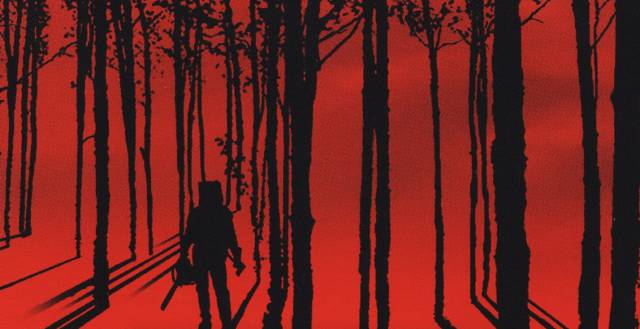
Resident Evil 4 made his particular three peat. It was announced too early, it showed phases of development it shouldn’t have, and made promises of exclusivity that it would later break.
But that development was hell or not, Resident Evil 4 became a masterpiece and one of the most influential games of the 21st century. His early announcement was not what ended that platonic love relationship between Mikami and Capcom. It wasn’t the ad, but what came with it. For one thing, the pace Capcom got used to. The pace at which it announced sequels and produced sequels. It was impossible to follow and ended up burning his great talents (like Hideki Kamiya and Keiji Inafune). A rhythm that we studied in the articles: Shinji Mikami, the resident of evil and The resurrection of Capcom; fall and return of the Japanese giant. On the other hand, and even more important, there is what happened to the famous “Capcom Five” from GameCube, five Capcom games that were to be exclusive to the Nintendo platform so that it would compete with PlayStation after the 32-bit generation , in which he could not do it (PSX sold over 100 million units and Nintendo 64 stayed at 30). Mikami had a lot to do with that agreement and repeatedly assured that the harakiri would be done if RE 4 came out on another console. For him, the Capcom Five (in honor of Michael Jackson) were going to be a compelling reason to buy a Gamecube. One reason why sales would skyrocket and, this time, there would be combat. Today we know that RE 4 is also one of the games that has had the most port and it is even difficult to think of a system that Leon S. Kennedy has not gone through.
That decision, which broke the relationship between Capcom and Nintendo for a good season, was also like a betrayal for Mikami. It was “the kiss of Judas”. He refused to work on the PlayStation 2 version and lost weight within Capcom. It focused on Clover Studio, where it would only last three years and give away one last game to the company, God Hand. He went from participating in more than 15 games in 5 years to not making any between 2006 and 2010. Fortunately, his creative genius would end up being resurrected by the hand of Platinum Games, Grasshopper and Tango Gameworks, but it is impossible not to think about cases like this when things happen like the one in the Demon’s Souls Remake trailer. That is, a trailer with small print at the end in which you can read that it is only a temporary exclusive and that it will also be released on PC. Why is that not made clear? Why has Sony pulled the trailer running when seeing the reaction and now says that it was wrong and is totally exclusive? Years later, we still do not have all the information when it comes to buying and it may be that, after what happened with Gamecube, more than one person will feel cheated or disappointed again by purchasing a system for X games and then seeing how they turn out on another platform that already had or was interested more. We have learned nothing.
Demon’s Souls coming to PC ?! pic.twitter.com/GmGKOi3eZh
– Nibel (@Nibellion) September 16, 2020
Are we being too harsh?
Reading and rereading these lines, and perhaps a little moved by nostalgia for so much memory, we wonder if we are not being too harsh. If we are not being unfair. After all, there are many advertisements that are done well. Or even better than good. On YouTube there are compilations with great moments from E3 that always cause something to get in our eyes and it is impossible for us not to vibrate again. Perhaps we should also put ourselves in the role of the other. Because you have to understand companies. If Sony ever announces that Demon’s Souls will be out on PC and in the future on other consoles … they will eat it up. The idea flew through forums around the world for just a few minutes and it was enough for people to take to the streets with torches. And yet, if in the future it carries out that movement without having prepared ourselves before with several statements and errors like that … more of the same, they will eat it up. We are insatiable and given to take more attachment than recommended towards what, deep down, are nothing more than brands and plastic. Can you imagine that Salamandra stopped publishing the Harry Potter books and they also started to come out on SM with extra content and even more beautiful covers? Would someone really make the effort to complain about it? We doubt it. But in the video game sector there are even those who celebrate that Microsoft buys Bethesda in case that means that their games come out on fewer platforms and thus they “win” the console wars.
The public for videogames every day is wider, heterogeneous and demanding. We should accept that not all advertisements are for us, nor should they be.
This industry of ours is like that. Weird, passionate and horny. There is nothing wrong with it, it is fun and exciting, but we should be aware of it. If in the presentation of a game gameplay is taught, more than one is able to say that it is bored, that it lasts a long and it looks very bad. It happened at the PS5 event with Final Fantasy XVI. But be careful because if it is the opposite and they only give us a kinematics, then it is smoke and “you can’t see anything.” It happened to Ubisoft with Rainbow Six Quarantine and Microsoft with Warhammer 40K Darktide. If everything is sequels or triple A, we think it is more of the same, that this industry does not innovate and excite as before; if they are remakes, reboots or compilations, we complain that the developers take the fryer out for a walk; and if we give ground to the indies, many say that “they are not games that sell consoles” and that they should not monopolize events like the Xbox Games Showcase in June. It is impossible to please everyone. Video games are already the entertainment medium that generates the most money and more titles are sold than ever. They are as important a part of pop culture as any other and their audience is becoming wider, more diverse and demanding every day. Not all ads are for us, nor should they be. Clearly, it is becoming increasingly difficult to get a unanimous reception. There may never be again.
Advertising video games is not easy, and less this year
We would have to understand that, the new and very complex target of which we are part, and something even more important: that this is still a business. There are thousands of decisions, market studies, strategies and consequences that we do not know. Maybe if Capcom has to betray Mikami and release Resident Evil 4 on PlayStation 2 it is because the Capcom Five sales are not covering the budget and put the division at risk. And maybe if Sony played the trick of The Last Guardian it was to give PS3 a break in its first and difficult steps. More important if possible is to remember that this year the coronavirus has deprived us of E3, Gamescom, Gamelab and similar fairs and events. The events held by Sony, Microsoft, EA and Ubisoft have had to deal with the problems of the pandemic, from which this industry has not emerged unscathed. As Jason Schreier explained in The New York Times, during these months the consumption of video games has increased, yes, but production has declined and suffered serious setbacks. Teams of 300 people trying to advance individually and for whom “many days they were simply communicating, trying to solve problems and organizing things, pointing out a direction.” Due to having to combine their work with living with their family and children, or with the limitations of their home, for example in terms of connection speed, many developers admitted to working intermittently and at odd hours. “It’s a lot like when I’ve had to crunch,” several independent developers acknowledged Schreier. Voice and motion recording sessions, product testing, and many other parts of production, such as localization, have been postponed, canceled or limited. Larian Studios (Baldur’s Gate 3) claimed that “development is progressing, but at 70 or 80 percent of its normal productivity.” It may seem like little, but that number has already meant more than 40 delays in the schedule of future releases. Put now that, to teams that are being delayed and with the water up to their necks, you ask them to dedicate resources to elaborate a demo and an attractive trailer for a promotional event. Is not easy. Announcing something this year is not easy. And hit, less.
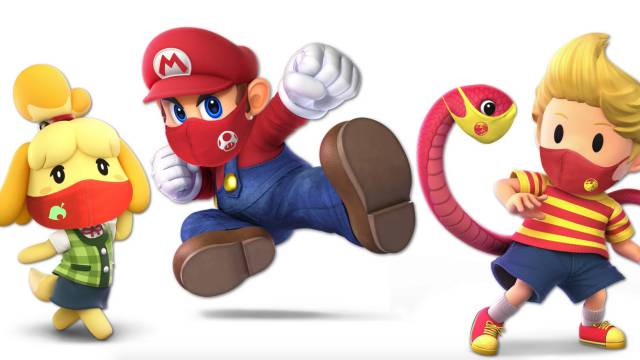
The coronavirus has also affected video games and has caused more than 40 delays so far this year. Ads have been harder than ever.
The Nintendo model
Then one remembers “the Nintendo model”. For years, the Japanese company no longer sticks to events and big calendar appointments. If you have something to say, no matter the date, post a Nintendo Direct and drop it. Or write a simple tweet with a trailer and send a press release with all the necessary information, as in the recent cases of Hyrule Warriors: Age of Calamity, Pikmin 3 Deluxe and Paper Mario: The Origami King. It is a strategy that for many abandons the spectacle of years past and says goodbye to the adrenaline rush of E3, where all the ads were condensed without time or rest. Still it seems to work like a charm. Super Mario 3D All Stars, for example, was announced in a surprise Nintendo Direct and with less than a month left until its release. All in all, it has broken sales records and been a true success, like so many others before. It is normal that the rest of the companies have emulated the formula and tried this way of communicating with the user. There we have Electronic Arts with its EA Play, Ubisoft Forward, Sony’s State of Play and even Microsoft with its own Inside Xbox.
If we remember the “Nintendo model” it is not because of the format of its advertisements. To taste the colors, some will seem better this way and others will miss how things were before. If we remember it, it is because of how it has been polished and how it has evolved. It has taken many attempts to find the key, many Directs with negative reception and disappointed users. But the developer has taken note and has been learning from its mistakes. The recipe has improved and, for example, now the Nintendo Direct have a Mini version, another focused on the indies and there are even games that have their own Direct, such as Animal Crossing, Super Smash Bros. and Pokémon. Even Nintendo is already preparing a special one for June and more loaded than usual, for all those who miss E3. It never happens that we are surprised by an event focused on the indies when what we expected to see were third party triple A, as it did at the Xbox Games Showcase in June. Y después de lo sucedido con Metroid Prime 4 y Bayonetta 3, los vídeos también han pasado a centrarse en lanzamientos próximos o inminentes. Ha habido ocasiones en las que la propia Nintendo ha salido en sus redes sociales a rebajar las expectativas y aclarar contenidos de un vídeo. Todo un paso adelante.
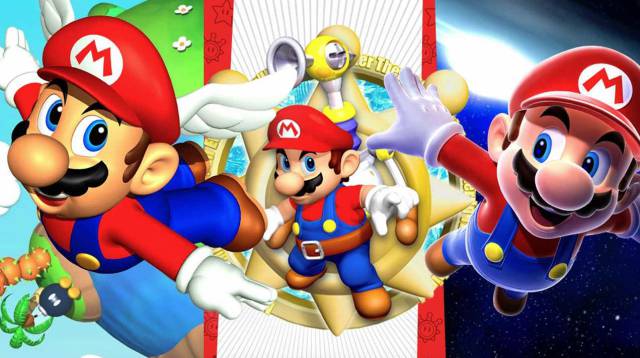
Aunque lo ocurrido con Super Mario 3D All Stars lo emborrona todo un poco, los Nintendo Direct han señalado en una dirección tan interesante como saludable.
Que nadie se engañe. No estamos diciendo que Nintendo lo haga todo perfecto. Sigue haciendo anuncios que se quedan en el limbo (la secuela de Breath of the Wild y Hollow Knight: Silksong, por citar dos) y sigue comunicando mal muchas cosas. El último Direct por el 35 aniversario de Mario, sin ir más lejos, nos dejó un incómodo silencio en torno a Super Mario Galaxy 2 y una práctica inédita, la de vender un juego solo de forma temporal, algo que se anunció con una pequeña nota a pie de página. Pero incluso aunque la propia Nintendo aún no se haya dado cuenta de ello, en la evolución de su modelo está la prueba de que tenemos que seguir exigiendo y también el principio sobre el que construir anuncios mejores: transparencia y tranquilidad.
Cuidando los detalles
Como decía el filósofo George Santayana, “los pueblos que no conocen su historia están condenados a repetirla”. Quizás la solución pase por comprender todo lo aquí expuesto. Que las compañías recuerden las consecuencias que puede tener precipitarse, mentir y hacernos partícipes de las primeras fases del desarrollo. Que los jugadores acepten que no todos los anuncios son para ellos y que eso es una buena señal. Que sean conscientes de las dificultades de todo anuncio, de las complicadas decisiones que hay detrás y de qué quejas son justas y cuáles no. Un ni tuya, ni mía. Un término medio que sirva de tierra fértil y nos permita cultivar transparencia y tranquilidad. Si los juegos van a salir a 80 euros o solo van a estar disponibles hasta marzo del año que viene, que no nos enteremos por una nota a pie de página. Lo mismo si son exclusivos temporales, o intergeneracionales. No cuesta nada aclarar y comunicar; cuidar los detalles. Si Demon’s Souls Remake va a estar de lanzamiento, tampoco pasa nada por decirlo en el evento. Si Eric Lempel, Head of Marketing de Sony, asegura que las reservas se comunicarán con tiempo, basta con cumplir con su palabra y no abrirlas por sorpresa. Hoy sirve Sony de ejemplo, mañana será otra. ¿Lograremos que esta novena generación cambien las cosas y los anuncios estén a la altura? Solo de imaginarlo nos da un escalofrío. Veremos de qué tipo acaba siendo.

